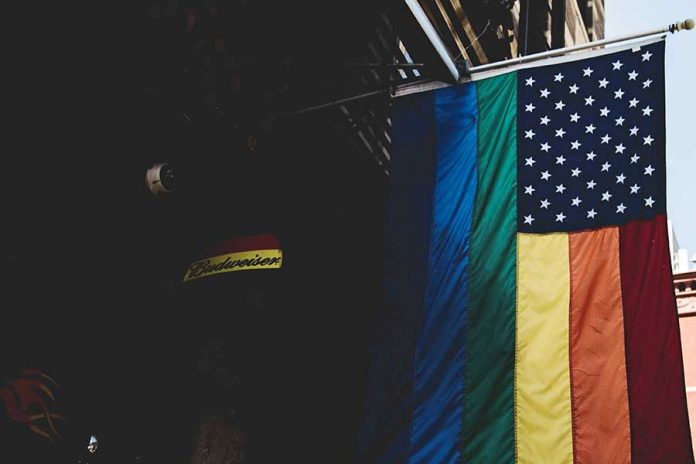The Human Rights Campaign (HRC), the nation’s largest lesbian, gay, bisexual, transgender and queer (LGBTQ) civil rights organization, released its 2020 Presidential Questionnaire on Feb. 24. All but one — Rep. Tulsi Gabbard (D-HI) — of the eight remaining Democratic candidates responded to the 18 questions.
Andrew Yang and Deval Patrick also responded but were not included on the HRC website as they both withdrew from the race after the New Hampshire primary.
HRC explained that 2020 “marks the most pro-equality field of Democratic Presidential candidates in U.S. history. Each candidate has released more detailed plans for LGBTQ people and LGBTQ equality than any field in history, recognizing that LGBTQ voters and our pro-equality allies are a crucial constituency to court.”
The release of the candidate questionnaire responses is, HRC said, “a crucial step in the Human Rights Campaign’s endorsement process.”
HRC asked questions on topics ranging from the Equality Act to health care and conversion therapy to immigration reform and gun violence.
Significant in the questions, HRC noted, is that for the first time, the questionnaire asks the candidates for their plans to address the epidemic of violence facing transgender and gender non-conforming people, especially Black trans women. Since 2013, over 150 transgender and gender non-conforming people, most of them Black transgender women, have been killed. HRC strongly believes the federal government is uniquely poised to address this national problem.
HRC President Alphonso David said, “LGBTQ people are among the most politically engaged constituencies in the country, and Democratic presidential candidates are taking notice. The more than 11 million LGBTQ voters and 57 million Equality Voters — LGBTQ voters and our allies — are crucial members of the intersectional coalition that will oust President Trump in November.”
David made a point to reference the damage Trump and his administration have done to the LGBTQ community, not the least of which has included enforcement of religious freedom laws that harm LGBTQ people and the trans military ban.
David said, “Throughout his administration, Trump has attacked LGBTQ people at every opportunity. From eliminating access to necessary health care to actively supporting discrimination in the workplace, Trump has put LGBTQ rights at risk. Our community is looking for a leader that understands the challenges we face each and every day and has substantive, realistic plans to overcome them. The Trump-Pence administration must be stopped, and HRC will work nationwide through November to ensure that they are.”
The impact of the Trump administration is immense, David said. HRC notes that “the Trump-Pence Administration has rescinded key protections for transgender students, appointed two new conservative justices to the Supreme Court, banned transgender troops from serving openly in the military, and has repeatedly sought to allow discrimination against LGBTQ people in healthcare, housing, public accommodations and other aspects of life under the guise of ‘religious freedom’.”
HRC delved back to the 2016 campaign, reminding constituents that “despite campaigning on a promise to be a friend to the LGBTQ community, President Trump designated Mike Pence as his vice president, and has refused to advance bipartisan federal civil rights legislation — the Equality Act — which overwhelmingly passed through the U.S. House of Representatives this spring.”
These are the issues that are raised by HRC’s questions. HRC asserts that “There are an estimated minimum of 11 million LGBTQ voters nationwide — along with millions of parents, siblings, friends, colleagues, and allies — who will play a decisive role in the 2020 election. Since 2016, HRC has identified more than 57 million ‘Equality Voters’ nationwide who prioritize LGBTQ-inclusive policies, including marriage equality, equitable family law, and laws that would prohibit discrimination on the basis of sexual orientation and gender identity.”
The candidates’ responses range in breadth and attention to the issues. Sen. Elizabeth Warren (D-MA) wrote more than any other candidate at 6,200 words, with much focus on issues impacting trans folks. She wrote “Violence and harassment of transgender people — and especially transgender women of color — is a national crisis.”
Former Vice President Joe Biden offered 5,500 words and Sen. Bernie Sanders (I-VT) 4,700. Both men responded in length about the HIV/AIDS crisis. Sanders said, if president, he would set a national goal of eradicating HIV/AIDS in the U.S. by 2025.
The other candidates all gave far shorter responses of fewer than 3,000 words. Sen. Amy Klobuchar (D-MN) offered the least at 2,390. Former New York City Mayor Mike Bloomberg responded with 2,880 and financier Tom Steyer with 2,980, but a full 700 words of Steyer’s response was devoted to the mostly non-LGBTQ question about gun violence.
Pete Buttigieg, whose candidacy is historic for his being the youngest candidate in U.S. history and the first openly gay candidate from a major party, responded with 2,600 words. Buttigieg answered with one clear line when asked about the trans military ban — “I will immediately repeal the ban on military service for transgender Americans and allow our transgender troops to serve openly.”
HRC states, “LGBTQ voters cast ballots in higher numbers than the general population in the 2018 midterm elections. LGBTQ voters cast more than 7 million ballots in all — a turnout of roughly 70 percent, compared to a turnout of 49 percent among the general population — and comprised 6 percent of the entire electorate, despite representing 4.5 percent of the voting-age population.”
If those numbers are replicated in the primary and the general election, LGBTQ voters can help defeat the Trump-Pence administration. The responses from the candidates are available on the HRC website: https://www.hrc.org/election2020.
